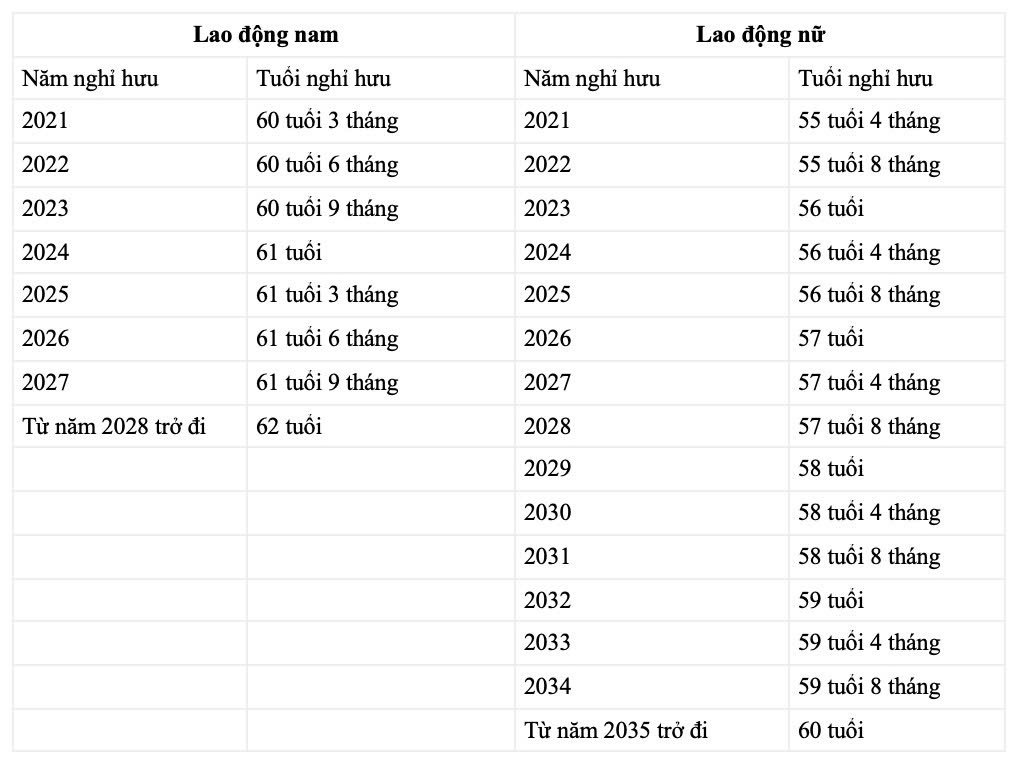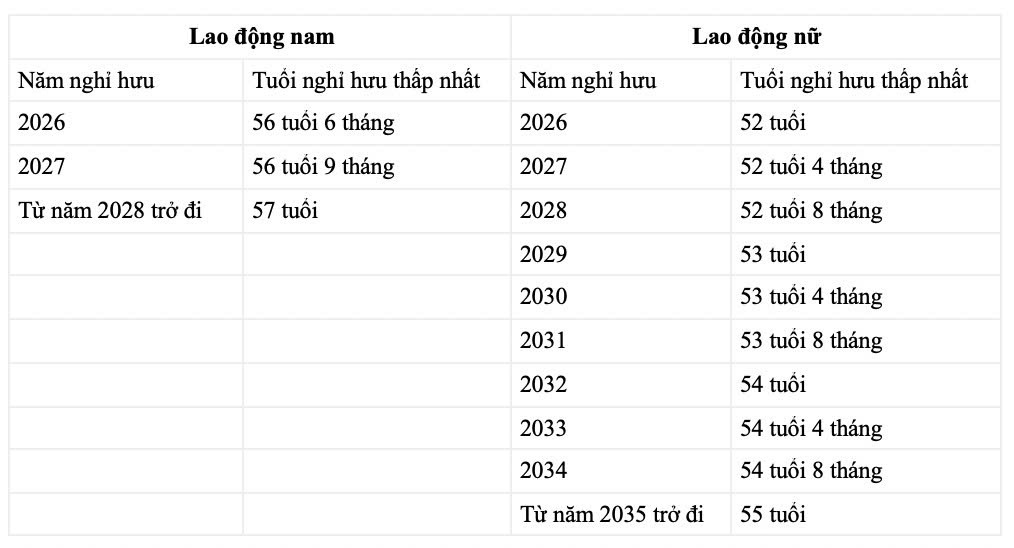From January 1, 2026, the Law on Teachers will officially take effect. The law stipulates many policies that are beneficial to teachers, in which, preschool teachers will be allowed to retire 5 years early if they wish.
Specifically, Article 26 of the 2025 Law on Teachers stipulates the retirement regime for teachers as follows:
The retirement age of teachers is implemented according to the provisions of the Labor Code and other relevant legal provisions, except for the cases specified in Clause 2 of this Article and Article 27 of this Law.
Teachers in preschool education institutions, if they wish, can retire at a lower age than the retirement age of workers under normal conditions but not more than 5 years old. In case of having paid social insurance for 15 years or more, the pension percentage due to early retirement will not be reduced.
At the same time, Articles 4 and 5 of Decree 135/2020/ND-CP stipulating the retirement age clearly state: "From January 1, 2021, the retirement age of employees in normal working conditions will be 60 years and 3 months for male employees and 55 years and 4 months for female employees; after that, increase by 3 months each year for male employees until reaching 62 years old in 2028 and increase by 4 months each year for female employees until reaching 60 years old in 2035".

According to this regulation, the normal retirement age for teachers from January 1, 2026 to December 31, 2026 is 62 years and 9 months for men; 57 years old for women.
However, according to the Law on Teachers, preschool teachers who wish will be allowed to retire before the age of 5, and will be allowed to retire at the age of 52.

Therefore, from 2026, preschool teachers (female) from the age of 52 who are working will be allowed to retire if they wish
Developing a preferential allowance regime for preschool teachers
Resolution 71 of the Politburo stipulates that preschool and primary school teachers are entitled to a minimum of 70% preferential allowance, the highest is 100% for teachers in particularly difficult areas, border areas, islands, etc. For school staff, the allowance is 30%.
Specifically stipulating the provisions in Resolution 71-NQ/TW, the Ministry of Education and Training is developing a Decree regulating preferential allowances according to the profession for civil servants and employees working in public educational institutions.
The Ministry proposes to do this in two phases.
In the first phase from 2026 to 2030, the allowance for preschool and general education teachers will increase by 15% compared to the present.
Phase two is from 2031 onwards, and it is expected to implement the preferential allowance level as in Resolution 71.
Regarding the roadmap, the Ministry of Education and Training is currently coordinating with the Ministry of Home Affairs and the Ministry of Finance to develop a Government Decree, expected to be submitted to the Government for approval in 2025 to ensure progress is in place at the same time as the Law on Teachers.
The situation of preschool teachers quitting their jobs has occurred in recent years. This causes a serious shortage of teachers in preschools, especially in big cities.
According to the Ministry of Education and Training's newspapers, the main reason is due to high work pressure, low income, not commensurate with the effort, along with working conditions and benefits that have not met expectations.
New policies on salaries and benefits are expected to create motivation to retain teachers in their profession, ensuring the quality of education and training.











